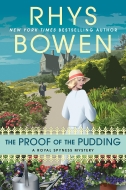 MY SEASON OF SCANDAL |
 April's Affections and Intrigues: Love and Mystery Bloom |

Purchase
Highland Bookshop Mystery #2 Mystery Cozy Excerpt of Scones and Scoundrels by Molly MacRaeChapter 1 “Janet, I dare you to read this and tell me you aren’t ready to commit bloody murder.” Janet took a step back as Sharon blazed toward her, shaking her fist and the letter gripped in it. Even with the barrier of the sales counter between them, Janet took another step back when Sharon slapped the paper on the countertop in front of her. Janet Marsh had smiled when the bell over the door of Yon Bonnie Books jingled and Sharon Davis entered the shop, though the smile was against her better judgment. In the few months she’d known her, she’d learned that Sharon had a way of presenting “opportunities” that turned into more than Janet had bargained for. Still, asking Janet if she might be ready to commit “bloody murder” was kicking it up a notch. “Go on,” Sharon said. “Open it. Read it.” Janet couldn’t. Sharon’s fist held it to the counter. “I’ve no doubt,” Sharon said, “that Gillian will stop by and give you a copy of your own. But you can thank me for letting you see these ridiculous demands two weeks ahead of your event and not a mere three days prior to.” She punctuated each word of the unacceptable time frame with a pound of her fist on the paper. Janet guessed she could move fast enough to snatch the paper between pounds. Sharon might be ten years younger, but Janet trusted her own reflexes. Even so, she opted for waiting at a safe distance. With Sharon’s last bang, her fist stayed in the center of the paper, pinning it to the counter like a squashed bug. From the way her breath came in ragged puffs, Janet wouldn’t have been surprised to see steam jetting from her ears. When Sharon’s breathing calmed, Janet stepped forward to give the paper a gentle tug. “Oh. Sorry.” Sharon took her fist away. She shook the hand out then patted it over her short hair. “I’m surprised it isn’t standing on end like hackles. Sorry about barging in like a mad dog.” She banged the counter one more time. “But Gillian Bennett has a lot to answer for.” Janet had thought the same of Sharon when they first met, but she tried not to hold it against her. Sharon, as director of the Inversgail Library and Archives, was often in a position of having to raise funds or recruit volunteers. Janet knew about the wiles needed by public servants to meet the needs of their institutions. Before following her retirement dream and moving from the prairies of central Illinois to Inversgail on the west coast of Scotland, Janet had been a librarian too. Even knowing Sharon’s temperament, Janet was a bit surprised she was so on edge. Gillian Bennett was the principal teacher in the English department at the Inversgail High School, and it was thanks to her foresight and organizational skills that a renowned writer was coming to spend the next three months as an author-in-residence. Janet unfolded the paper, but before she could read it, Sharon snatched it back. “It’s a list of the most preposterous demands from a visiting author I have ever seen,” Sharon said. “Listen to this.” Janet sat down on the high stool behind the counter and waited while Sharon fumbled a pair of reading glasses. Sharon seemed not to have noticed that Janet hadn’t, so far, said a word. Another indication, Janet thought, that Sharon was unusually rattled. True, Daphne Wood was not a typical visiting author. She was an award-winning environmental writer, known internationally as the icon of ecology, who led the life of a modern day Thoreau. She lived in a log cabin she’d built herself in the wilds of Canada, and she was being brought to Inversgail as an author-in-residence for three months of the autumn school term. But more than that, she was being brought home. She’d lived in Inversgail during part of her childhood and her arrival was keenly anticipated, from what Janet could tell. The library was hosting the inaugural author event Friday evening, but there was no reason for that to be as catastrophically rattling as Sharon was making it out to be. Glasses found at last, and settled on Sharon’s nose, Janet assumed she was about to hear a reason. Possibly several. Sharon snapped the paper to attention and read. “Requirements for library and bookstore appearances: laptop with Microsoft Office and Photoshop software; access to a color printer with scanning, fax, and copier capabilities; photo paper for printer—glossy—two reams; ice cold Pepsi Free—one six-pack; hot tea—any variety, but no Earl Grey; Jaffa Cakes; McVities Chocolate Digestives—dark chocolate, not milk; quiet room away from the public with smoking permissible—if such is not available, though it is preferable, then a porch or similar fresh air structure, well sheltered from weather, is acceptable; tissues; three Pilot G-2 0.5 pens—black; one Pilot G-2 0.7 pen—blue; assistant with Post-its ready and responsible for ascertaining proper spelling of names and inscriptions, opening books to title page for signing, keeping order among patrons waiting in line, popping Pepsi Free tops, pouring tea.” Sharon snapped the paper again and slammed it on the counter. “And at the end of that lengthy and ludicrous list, she asked for a ceramic bowl with fresh water to which I say havers.” “A bowl? And she specified ceramic? That’s a new one.” The fist came down again and Janet hastily added, “It does sound like nonsense. Havers, absolutely.” “I’m glad you agree. So, are you going to kill her or will I have to do it for both of us?” Janet’s eyebrows had drawn steadily closer together as Sharon read. At the repeated question of killing, Janet’s eyebrows shot upward. “Surely—” “It’s a joke?” Sharon said. “I thought so, too. I even laughed when Gillian gave it to me. Gillian didn’t.” “But surely Gillian isn’t responsible for that list,” Janet said. “It came from Daphne Wood, didn’t it? Gillian must be as blindsided by it as you are. As you and I both are,” she added for placatory good measure. “And your event is Friday, isn’t it? That gives you five days.” “Only if you count today and the day of.” Which, Janet thought, any reasonable person would. “The list is probably negotiable, though, don’t you think? And your event is the dedication and ceilidh dance to welcome Daphne and recognize Gillian’s father for his work in Glen Sgail. It’s more of a party and she won’t be signing books. It sounds to me like this covers the requirements for the whole three months of the author-in-residence visit and not something you—we—need to worry about.” Janet waited until she saw a grudging nod from Sharon. “I’m sure Gillian’s only the messenger. And you know what they say about shooting the messenger.” Sharon’s nod became a glower. “Clichés exist for a reason.” “In that case,” Janet said, “let’s indulge in a few more and look on the bright side. I’ll talk to Gillian and see what we can work out. You and I won’t let that list put a damper on our day or the excitement of Daphne’s visit. How does that sound?” To her own ears, it sounded twee, but a guttural noise rose from Sharon’s throat, and Janet chose to interpret it as agreement. She came out from behind the counter and walked with Sharon to the door. She meant just to open and hold the door for Sharon, but then decided to step outside with her. “Isn’t it a beautiful day? Better than any cliché we can dream up. Cloudless sky, waves gently lapping, Rab and Ranger ignoring the tourists but looking picturesque on the harbor wall.” “Don’t let the sun fool you.” Sharon clamped her lips on that statement, but too late to keep another guttural from escaping. With a parting sniff, she left. “She’s right, you ken.” An elderly woman with a shopping bag had stopped beside Janet. “Do you see yon cat with Rab MacGregor and his wee dog?” “Yes.” “Cats are aye right. It’s washing its ears. Rain’s on the way.” If that were true, Janet thought as she watched the woman continue up the High Street, then the cats of Inversgail, Scotland, must have the cleanest ears in creation. She tipped her head to look as high into the clear blue as she could before going back into the bookshop. Her daughter came out of the storeroom as Janet disappeared down the aisle where they shelved language books. “Did I hear the sounds of an irate librarian a little bit ago?” Tallie called after her. “And you didn’t come to rescue me?” “You were using your calm mom voice, so I knew you had it under control.” “I think I reassured her,” Janet said. “Somewhat. She had new details for the Daphne Wood program at the library and our book signing, and they put her in a stew. But you know Sharon.” She ran a finger along a shelf until she found the book she wanted, then took it back to the sales counter. “I don’t know Sharon much beyond saying hello or wondering what new stew she’s in.” Tallie looked at the cloth she’d brought from the storeroom, wiped her hands on it, and then stuck it in a back pocket. “You can’t say you really know her either, can you?” “But she came to me in an agitated state and I consider that the sign of a friend in need,” Janet said as she leafed through the book. “Even if I couldn’t do much to help in the moment. Ah.” She looked up. “Listen to how many words we have for describing rain now that we’re here. Black weet, blatter, blaw bye, and dreep. Dribble, drouk, onding, and peuch. Plype, saft, scudder, and smirr. There’s more, too, and I’ve heard some of them, but not all. I’m going to start keeping track. A life list, the way birders do.” “Put them to music and I’ll do a jig at Nev’s tonight.” Tallie looked from the sunny view out the window to her mother. “Is Sharon worried about the weather for Friday night? We’ve only been in dribbly Scotland a few months and yet we’ve taken to the scuddering dreeps and blaw byes like ducks to drouks. If we can plan around a plype, what’s her problem?” “You have a good head for vocabulary, dear. But her problem isn’t the weather. It’s a sudden attack of persnickety specifics.” Janet didn’t mention Sharon’s talk of bloody murder, not wanting to give her daughter, the former lawyer, a cause for alarm. “‘The Persnickety Specifics’— that’s what we can call ourselves when I sing and you do your jig at Nev’s. We’ll be a hit.” “Nice. I’ll go on back to the storeroom and limber up while I finish checking in the order.” The bell jingled again and Janet turned to greet the next customer. Tallie took the cloth she’d stuck in her pocket and whirled it around her head with a whoop as she headed for the storeroom. The morning’s business continued in a steady trickle. Something more than a smirr of business, Janet decided, but less than the all-out frenzy of a blatter. Customers came and went, some passing first through Cakes and Tales, their adjoining tearoom, and bringing with them the smell of fresh cakes and scones. The occasional clinks and clatters from the tearoom were a muted counterpoint to Emanuel Ax tickling Chopin from a piano on the CD playing over the sound system. All in all, and despite Sharon’s worries about the impending author visit, it was the kind of morning that made Janet believe she, Tallie, and their business partners Christine Robertson and Summer Jacobs had been sane and completely right when they’d made the decision that brought them to Inversgail. Six months earlier, and after more months of researching, planning, and finagling, they’d pooled their resources, leapt after their dream, and bought Yon Bonnie Books and the building it had occupied for the past ninety-nine years. Two months after signing their names to the deed, the four had packed up their Midwestern lives and freighted them across the Atlantic. Janet and Tallie, having spent several decades of summers in Inversgail, were familiar with the town. Summer, a journalist, had studied for a year at Edinburgh University and promised herself she’d return one day for “a total Scottish Immersion Experience.” Christine, who’d grown up in Inversgail, was returning home to aging parents after living thirty years with her late husband in the same Illinois prairie town as Janet. The four women liked the symmetry of being the fourth set of owners since Colonel Stuart Farquhar opened the door of Yon Bonnie Books in 1919. They were already convinced the town would suit them. Inversgail was neither as small as a village, nor as large as a city. It was somewhere in between, and that was just right. They’d studied the shop’s financial records and further convinced themselves the business would work as an augmented retirement for the two older women and a revitalizing change of career for the younger two. The scheme they’d dreamed up, which included adding a tearoom next door and a bed and breakfast above, called for as much leaping of faith as it did careful planning. But they’d made the leap, and although there were early-morning hours when Janet imagined their lives as a teetering balance of level heads and a yearning for adventure, she felt they were accomplishing their goal. Tallie, pushing a cart loaded with new books from the storeroom, stopped by the sales counter. “Why did Sharon want to share her agitation with us? Anything we really need to worry about?” “Us? With all we’ve accomplished?” “Because more of Daphne’s books came in.” Tallied patted the books on one side of the cart. Daphne Wood was the kind of versatile author booksellers dream of, one who could write successfully for adults and children. She could capture the imagination of lay readers and the more seriously science-minded. She’d written three beautifully illustrated picture books and a popular series of novels in narrative poetry for the hard-to-please middle school set. “Lovely things,” Tallie said, stroking one of the picture books. “Lots of them, too.” “Are there plenty in the window display?” “Stacks there, too. It’ll be a shame if we have to send most of them back. Not so good for the budget either.” “I’ll check with Gillian,” Janet said. “There might be a hiccup or two, but nothing we can’t handle.” “That’s because you’re Super Book Woman,” Tallie said. “Able to read tall stacks of books in a single evening by the fire, although not quite able to reach the top shelf in our lofty philosophy section.” “That’s why stepstools and daughters were invented,” Janet said. Neither of the Marsh women were tall, but Janet enjoyed her bragging rights for having produced a daughter who, at five foot four, soared over her by two inches. “Also why we have Rab,” Tallie said. “He’s coming in today, isn’t he? Shall I leave these for him to shelve?” Janet went to the window and scanned the harbor wall. Rab MacGregor was no longer in sight. Neither was his Cairn terrier or the cat. Rab was an odd-jobs man whom Janet could believe was anywhere from a weatherworn forty to a fresh-faced sixty. He worked for various people and at various jobs around Inversgail. He also worked for them in the shop and the tearoom, “various” again being a good word to describe his hours and duties, both of which were more or less self-assigned. Rab’s services came as a package deal; where he went, so did his dog, Ranger. Ranger was as capable of self-direction as Rab, although Ranger’s intentions could never be described as “various.” When Rab was on the premises, Ranger invariably directed himself to one of the comfy chairs near the fireplace. He was mindful of the chairs, though, and waited patiently beside “his” for Rab to cover it with a Glasgow Rangers tea towel. Rab had a reputation for lacking get-up-and-go. Christine accepted his reputation at face value. “He drifts to a different drummer, rather than marches,” she’d said when he first came to work for them. “But despite his easy-oasy ways, he does a fine job when he actually shows up. He’ll do.” Janet had a different theory. She’d known Rab during the years her family spent summers in Inversgail. She’d watched him do carpentry repairs, delicate pruning, the mucky and back-breaking work of digging up a water line, and more recently an almost eerie session of reading tea leaves. She believed he’d planted his reputation, that he cultivated, tended, and guarded it, and that behind it there were intricate workings, puzzles, and endeavors they only saw when he let them. “Rab might be in today,” Janet said in answer to Tallie’s question. “Or maybe tomorrow. He said it depends on a deadline and whether he beats it or meets it.” She heard a snort that sounded like either disbelief or derision. Not from Tallie, though—Summer had arrived from the tearoom with a plate of pastries. “A deadline?” Summer asked. “Rab really said that?” “Something like it, anyway.” Janet smiled and took the plate from Summer. She admired Summer’s drive to make their business succeed, and the added energy she’d been putting into writing a weekly advice column for the Inversgail Guardian. But this attitude toward their lower-octane handyman had crept in recently, and Janet wanted to find out what was behind it. Not on the shop floor, though. “Time to stop and smell the scones?” she asked instead. “Smell, taste, and then tell me what you think of them,” Summer said. “A new recipe. But tell me later. I have to get back.” “What are you calling them?” Janet asked, passing the plate and a napkin to Tallie. “If you can’t tell what they are, I’ll need to tweak the recipe,” Summer called over her shoulder. She waved without looking back again, and returned to the clinks and clatters of the tearoom. “Does she sound stressed?” Janet asked Tallie. “She sounds like Summer.” Janet took a bite of her scone and considered that. “But you don’t think that lately she seems a bit more so?” “A bit more Summer than Summer? What does that even mean?” “Maybe she should slow down, look around? I’m not sure.” “Mom, I run three miles every morning to stay in shape, but for as long as I’ve known Summer, she’s burned off the equivalent number of calories just planning what she’s going to wear any given day. She’s in her element and she’s focused. She’s fine.” “I’m sure you’re right, sweetie. I’ll forget all about it and focus on these scones.” Janet took another bite. “They’re orange, no question. A hint of almond? And something else, but I’m not sure what. What do you think?” “That you aren’t really sure I’m right about Summer. You only call me sweetie when you’re distracted.” “What an interesting tic. How long have you been taking advantage of it? But you know, dear, you can’t always be right. That’s my job. I’m the smother.” Tallie laughed, as Janet knew she would. “Never in your life have you smothered,” Tallie said. “You are the very model of unsmothering motherhood. But going all Mother Hen is another story. You do know that Summer won’t appreciate you clucking over her, don’t you?” She wrapped her scone in the napkin and put it on the bottom shelf of the book cart, then looked at her mother over the rims of her glasses. “And she won’t appreciate you ignoring that scone,” Janet said. “Saving, not ignoring. It’s Monday. I want to get these books put away before the Highland Holidays coach pulls in after lunch.” “Good thinking. Do you want help?” “Nah. I’ll shelve the books. You shelve your worries.” Janet mimed putting a book on a shelf. “There you go. Under U for Unfounded.” “And if you ever write your memoirs, I’ll shelve them under N for Nuts I’ve Known and Loved.” Janet blew Tallie a kiss and watched her disappear with the cart of books down the aisle between some of the tallest and most eclectic of their mismatched bookcases. She finished her scone, thinking of it as fortification for the onslaught of day trippers the Monday tour bus out of Fort William usually brought. The identity of the spice that complimented the orange so well in the scone eluded her. But that was what labels in the bakery case were for. She wiped her fingers on her napkin and congratulated herself. She still had a mother’s touch. And a mother’s ability to reassure her child, no matter how old, how accomplished, or how astute that child might be. What Tallie hadn’t heard about bloody murder wouldn’t hurt her. Excerpt from Scones and Scoundrels by Molly MacRae |
|
| |||
|
||||




 © 2003-2024
© 2003-2024